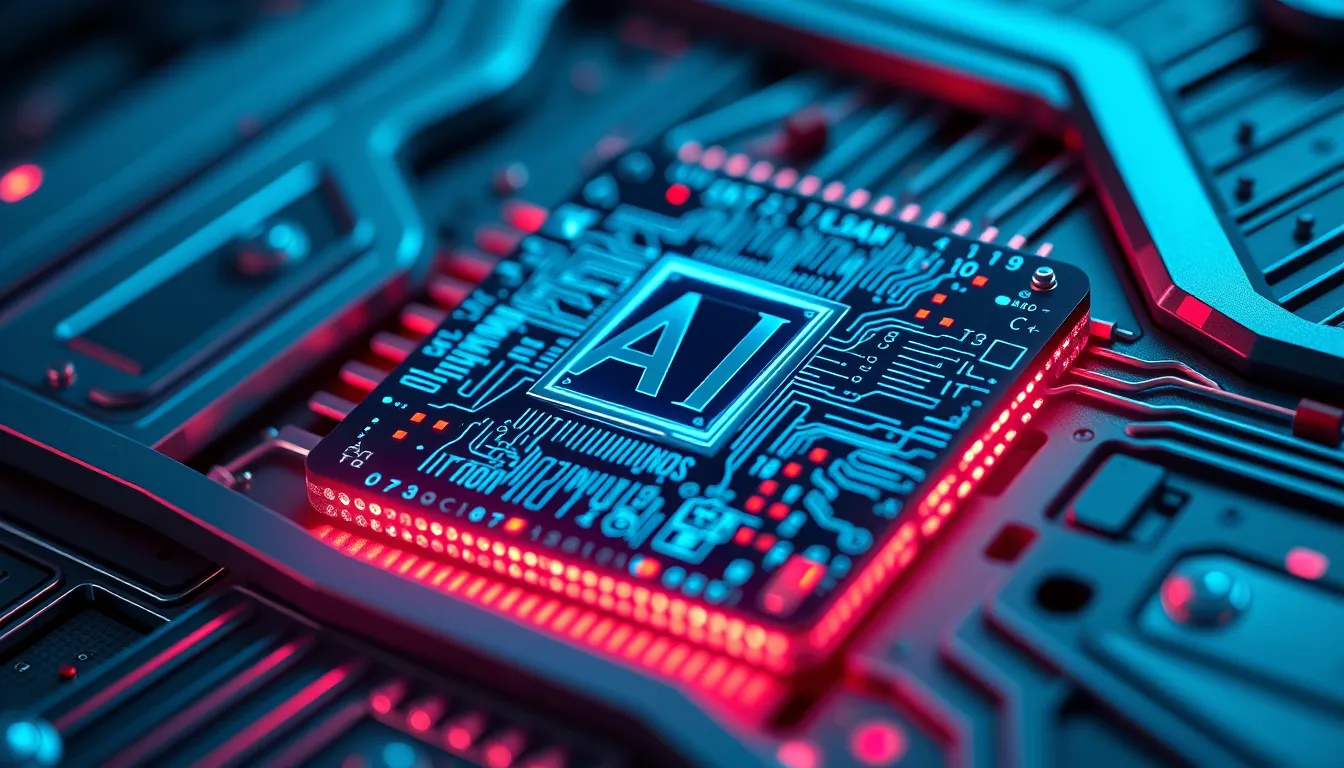Now Reading: OpenAI Custom AI Chip: Revolutionizing AI Hardware
-
01
OpenAI Custom AI Chip: Revolutionizing AI Hardware
OpenAI Custom AI Chip: Revolutionizing AI Hardware

OpenAI Custom AI Chip: Revolutionizing AI Hardware
In the dynamic world of artificial intelligence, innovation never stops. Today, we explore how the OpenAI custom AI chip is set to redefine the landscape of chip design and performance. With advances in deep learning and hardware optimization, companies are racing to tailor their AI solutions. OpenAI’s initiative to develop a state-of-the-art chip for its AI models illustrates the future of energy efficient AI chips and scalable hardware for deep learning applications.
Introduction
OpenAI, known for its groundbreaking research in artificial intelligence, is reportedly developing its very own custom AI chip. Unlike conventional semiconductor solutions, this chip aims to address the unique requirements of OpenAI’s advanced algorithms. The development strategy leverages a blend of tailored hardware for advanced AI algorithms and scalable hardware for deep learning applications. The focus remains on achieving higher throughput and lower latency while pushing the boundaries of performance and energy efficiency.
Innovative Chip Design and Performance Benefits
The push for an OpenAI custom AI chip signals a decisive move towards customized solutions that meet complex operational demands. Here are several performance benefits anticipated with the new design:
- Enhanced Processing Speeds: The dedicated architecture tailors processing to the demands of advanced AI applications.
- Optimized Energy Efficiency: Energy efficient AI chips ensure lower power consumption without sacrificing performance.
- Reduced Latency: Customized hardware minimizes delays, offering real-time, high-speed communication for AI tasks.
- Scalability: Designed to support future AI models, the chip is scalable for continuous upgrades.
By integrating these features, OpenAI marks a significant leap forward, creating a benchmark for future in-house chip designs.
Broadcom AI Partnership and Chip Production Trends
OpenAI’s venture is closely intertwined with industry partnerships. In particular, the strategic alliance with Broadcom exemplifies a key step in improving chip production trends. This partnership brings essential expertise in manufacturing and innovative chip production trends that are crucial for bringing the custom design from concept to production.
This collaboration not only aids in mitigating production challenges but also reinforces trust in a market where novel chip designs are increasingly required to keep up with evolving AI algorithms. The synergy between OpenAI’s vision and Broadcom’s proven track record could set the stage for further industry collaborations that support the creation of high-performance, energy-efficient chips.
Deep Dive: Tailored Hardware and Energy Efficiency
One of the most exciting aspects of this development is the focus on tailored hardware for advanced AI algorithms. Customized chip design allows for deeper integration of AI capabilities directly into the silicon, offering a perfect blend of performance and adaptability. Key areas include:
- Tailored Processing Units: Specialized cores that deliver superior performance on deep learning tasks.
- Energy Efficiency Optimization: Innovative design strategies to lower power consumption significantly.
- Scalability for Emerging AI Requirements: Future-ready architectures that can be upgraded as new AI challenges arise.
The need for an OpenAI custom AI chip stems from the demand to overcome limitations associated with generic chip designs. These limitations include slower processing speeds, higher energy use, and inadequate support for advanced algorithms. By prioritizing features like energy efficiency and scalability, OpenAI is actively setting new chip production trends that may influence the entire industry.
Future Implications and Industry Impact
The benefits of developing a custom AI chip extend far beyond technical performance. If successful, the OpenAI custom AI chip will signal a paradigm shift in how tech giants approach hardware design. This move could incite a competitive market where other companies begin exploring in-house chip development to achieve similar advancements. Industry experts predict that this strategy may lead to:
- A surge in tailored chip designs across various sectors.
- Increased investment in AI hardware optimization.
- Broader adoption of deep learning chip performance enhancements.
For those interested in more detailed insights and future updates, visit the OpenAI official website for verified and continuous news releases.
Conclusion
The development of the OpenAI custom AI chip encapsulates the ongoing evolution within artificial intelligence hardware. With its focus on tailored solutions, energy efficient AI chips, and innovative chip production trends bolstered by key partnerships such as with Broadcom, OpenAI is setting the stage for a redefined future in AI. As the project nears production, stakeholders within the tech community are eager to see how these advancements enhance operational efficiency and spur further innovation. The promising synergy between custom hardware design and advanced AI models is poised to become a game-changer in high-performance computing.
In summary, the OpenAI custom AI chip represents much more than a new piece of technology; it is a beacon of the transformative potential that awaits in the fusion of tailored hardware and progressive AI development. The industry stands on the brink of a new era where innovative chip design and efficient performance will fundamentally alter the capabilities of artificial intelligence.

























